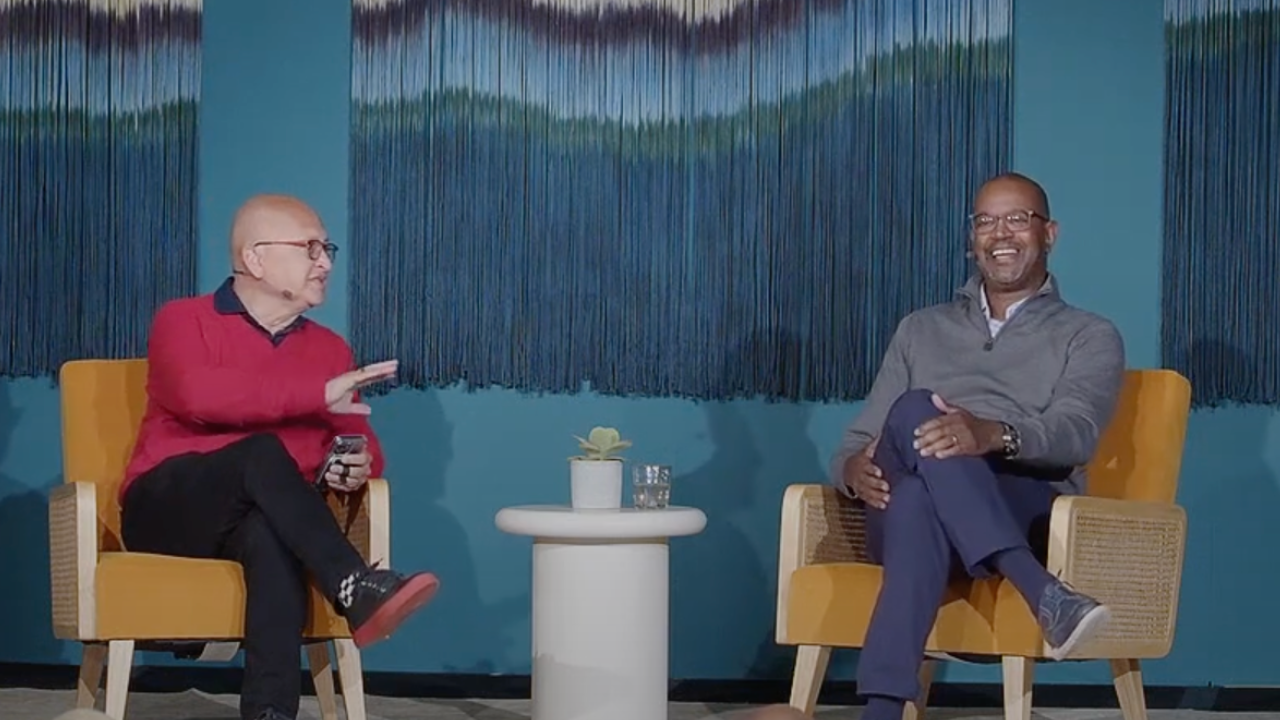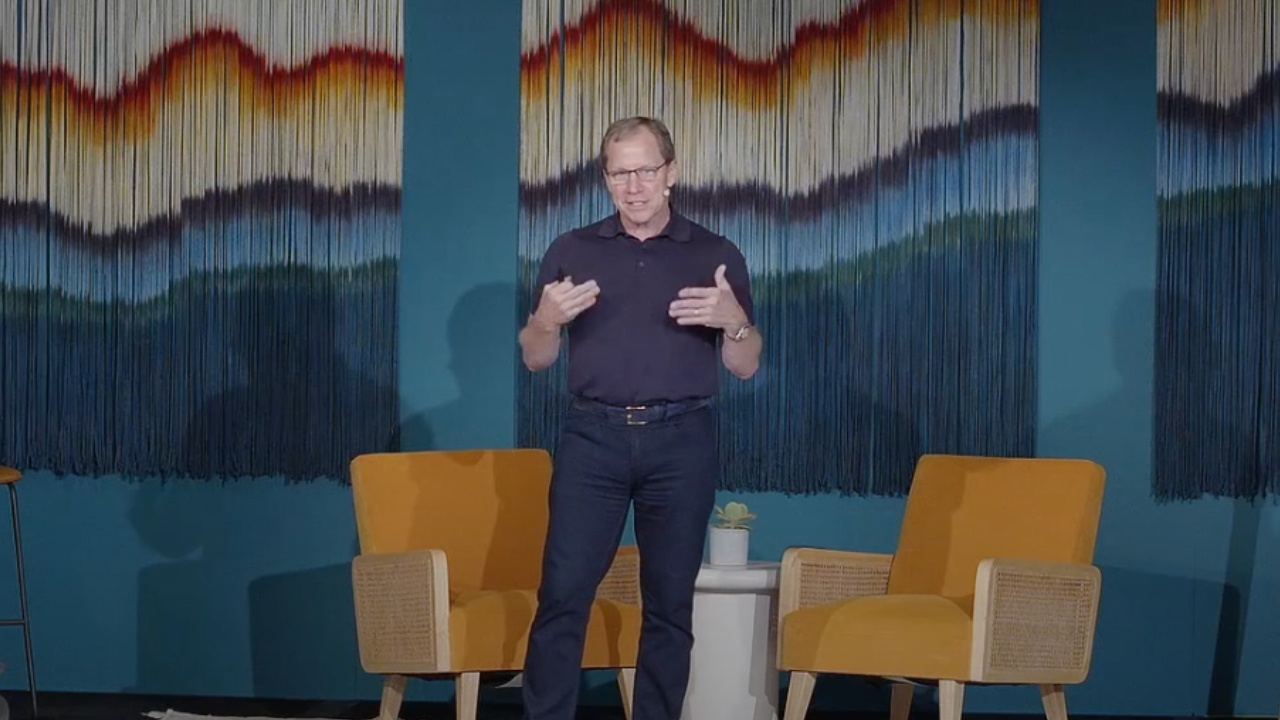On Wednesday, March 2, 2022, Indeed leaders Maggie Hulce, Senior Vice President and General Manager of Enterprise, and Abigail Carlton, Global Head of Social Impact, led a conversation on cultivating human-centered workplaces for our conscious community.
Over the course of their chat, Maggie and Abigail provided three angles for reimagining conscious workplaces: they shared what Indeed has done as a model to navigate pandemic-related challenges internally, detailed how they’re helping employers do the same, and offered insight into how recent hiring trends and data can inform employer decision-making going forward. Here are our three biggest takeaways.
1. Job market data shows that many job-seekers are still being shut out of the workforce. Conscious employers can help by breaking down pervasive employment barriers, or at least alleviating the burden.
According to Maggie, the gap between the number of open jobs and the number of those employed has never been greater than it is now as we begin to emerge from the pandemic. And she credits the increased number of employment barriers for that.
Even as we break into 2022, Maggie notes that data shows that there are numerous factors still keeping workers unemployed. Among the current challenges, she lists that “obviously a lot of people have still been concerned about the pandemic; we still don’t have a vaccine for really young children, childcare responsibilities for women in the workplace in particular remain a major constraint; school has not been steady… These are real reasons why we still have many workers on the sidelines.”
She also notes that the food service, retail, and hospitality and tourism sectors are facing particularly hard times in terms of hiring, noting that many are facing wage pressures and more.
For many employers, getting people into roles at their companies will mean rethinking their company culture. From ensuring they’re offering fair pay to providing increased flexibility, conscious businesses in particular must align their values with what they can offer job-seekers and employees in order to hire and retain them.
2. To overcome pandemic-related challenges internally, Indeed has focused on active listening, reflection, and communication, followed by action.
For Abigail, what’s stood out to her the most during her time at Indeed has been the empathy with which Indeed’s senior leaders operate:
“The thing that keeps bubbling up to the top for me that feels particularly human-centric about the Indeed culture is that it feels like it is really premised on listening and reflecting, and that goes right all the way up to the top with our senior leadership team.”
“[The Indeed culture] is really premised on listening and reflecting, and that goes right all the way up to the top with our senior leadership team.”
Abigail notes that especially over the past two years, senior leaders have ramped up communication by leading weekly or biweekly Q&As with staff to discuss and reflect on social justice and pandemic-related issues. They then take action and react to employee sentiments and feedback; to counteract burnout during the pandemic, for example, Indeed enacted monthly “you days” where every employee is expected to take at least one personal day for themselves.
On the hiring front, Abigail notes that Indeed also practices what they preach: “I’m really proud of the fact that we have not only made these commitments externally, around things like addressing bias and barriers in hiring, but that we are trying to point all of that at our own hiring, as well.”
These equitable hiring efforts have been demonstrated in part through Indeed’s removal of degree requirements for a number of their currently open jobs, which is helping to reduce barriers related to education for potential candidates.
3. For employers looking to cultivate conscious workplaces, Maggie and Abigail recommend showcasing your organization’s value and being of value to employees everyday.
Alongside sister company Glassdoor, Indeed is helping employers to communicate their unique value proposition during the recruitment process to attract job-seekers. Maggie and Abigail shared the following areas they’ve seen employers highlighting on their career pages and in open positions that demonstrate human-centered strategies and consistently appeal to job-seekers:
Unique Culture & Benefits
“Many organizations have offered mental health and wellness benefits since the onset of Covid, maybe they allow pets to come in, more flexibility and more remote work options… If they’re relevant for you as an employer, make sure job-seekers can see them,” Maggie explains.
Diversity, Equity, and Inclusion
Abigail notes that employers can break down barriers for diverse talent by rethinking their hiring and HR practices. She places particular emphasis on updating job requirements to be skills-based rather than education-based, using more accessible language, and even thinking outside of the box in terms of how to hire and where to look for diverse candidates—she mentions partnering with workforce development organizations that focus on marginalized groups as a great place to start.
Through Indeed’s own Essentials to Work initiative, they’ve invested $10 million into U.S. nonprofits to help disenfranchised job-seekers gain access to technology, transportation, and criminal record-clearing services in order to get hired.
Pay Transparency
“We absolutely see employers… offering sign-on bonuses and more perks and making sure the salary information and those perks are actually in in the job descriptions,” Maggie notes, adding that visible salary ranges contribute to more positive company perceptions by showing candidates that a business prioritizes fairness and transparency.
Virtual Interview Processes
Whether a company is totally remote or has returned their workforce to the office, Maggie explains that virtual interviews are not only easier, but they also deliver better experiences:
“We’ve also seen as a part of the pandemic, [employers] need and want to connect with great candidates much faster than they may have been doing with their processes before. So, one of the things that employers adopted aggressively during Covid was virtual interviewing… it’s faster, it’s actually easier to manage, and it delivers a better candidate experience.”
She adds that, according to recent Indeed surveys, 82% of today’s employers use virtual interviewing for at least for some of their roles and 93% intend to continue to do so for the foreseeable future. The Indeed Hiring Platform (IHP) streamlines hiring processes for candidates and employers alike by automating everything from sourcing candidates, to screening applications, to scheduling virtual interviews, falling in line with Indeed’s Higher Purpose to make hiring simpler, faster, and more human.
To get the full conversation, watch the recording of this virtual gathering.
Our Virtual Gatherings are designed for business leaders, investors, and advocates who are looking to level-up their practice by learning from and connecting with Conscious Capitalists around the world.


